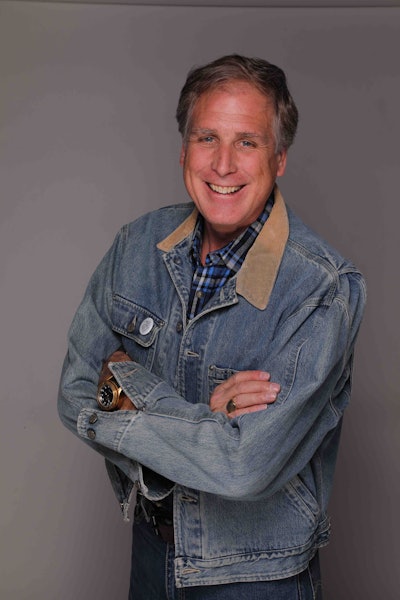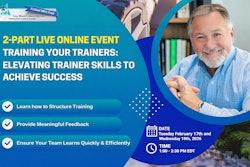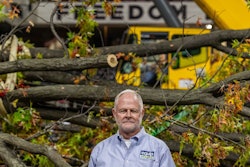
Recently, the World Health Organization (WHO) named burnout as an occupational phenomenon in the 11th revision of the International Classification of Diseases.
According to the WHO, burnout is a “syndrome conceptualized as resulting from chronic workplace stress that has not been successfully managed. It is characterized by three dimensions:
- feelings of energy depletion or exhaustion;
- increased mental distance from one’s job, or feelings of negativism or cynicism related to one’s job; and
- reduced professional efficacy.”
The WHO points out that burnout is specific to occupations and should not be applied to describe experiences in other areas of life. It also stresses it is not classified as a medical condition.
Burnout isn’t a new phenomenon, though, and it almost seems like an expected side effect of being a good leader or worker in a company. Yet, burnout can prove to be quite dangerous when you refuse to acknowledge it and take the proper steps to reduce your stress levels in the workplace.
Tom Eddington, CEO of Eddington Advisory Services, is one example of just how bad burnout can get.
Between traveling and working with clients, Eddington’s workweek hours slowly began to creep up from 60 hours a week one year to 70 hours a week the next year, all while he was also in graduate school for a master’s in organization dynamics at the University of Pennsylvania. He averaged around four hours of sleep a night.
“And then when I was up to averaging 100 hours a week, that’s when I really started crashing,” Eddington says.
He was soon diagnosed with Lyme disease, which he treated and then returned to work. However, a whole range of physical symptoms started presenting themselves in 2002.
“Some were extreme, like losing my eyesight, and just going blind for a half an hour to 45 minutes at a time,” he says. “I was having problems with focus and concentration, migratory pain and fatigue. I just felt like I wasn’t really showing up as my best self. I noticed I was just not being able to get things done and feeling a sense of impatience. I’m a pretty easy-going guy and was losing my ability to keep things in perspective.”
The Lyme disease also returned and began to attack his nervous system. It eventually got to the point that Eddington had to quit his job.
“I went from being a leader and owner in a well-respected firm to needing help and being vulnerable,” he says. “From being the provider for my family and focused on making a hell of a lot of money to losing my health, having little control over my body, taking massive quantities of antibiotics and being attached to an IV pole three times a day.”
Eddington says that prior to his body crashing, he never considered burnout to be a real thing.
“At the organization I was working in, people had bragging rights about how many hours they clocked in,” he says. “There was a just a sense of pride about that sense of how much could you get done. How productive could you be?”
Eddington didn’t think of his lifestyle as being a workaholic, but he did take pride doing good work for his clients and not having to say no to any task. It was rewarding to him to see his clients succeed and he was recognized by his company, as well for his good work.
“It’s partly because of the way I was raised,” he says. “It’s partly because of our culture that we have in our society. It was partly driven out of my genuine desire to succeed as I had defined success. Even if my organization wasn’t celebrating that kind of effort, I probably would have been doing it just because of my worldview and how narrowly I was defining success.”
 Tom Eddington
Tom EddingtonEventually, Eddington realized that he had to fundamentally change what he believed to be the most important aspect of his life, which had previously been his career and financial accomplishments.
“It’s really easy to be thinking about buying that next car or buying that next thing or having a bigger house or whatever we put our material focus on,” he says. “But at the end of the day, you know the cliché about you never see somebody with a U-Haul behind a hearse. You can’t take any of it with you.”
By 2008, Eddington was able to return to work but could only work a small amount of time a week, so he decided to figure out how he wanted to spend the rest of his life. In the end, he developed a set of filters.
“The first was, I only wanted to be doing things that made the world a better place,” Eddington says. “The second was I only wanted work with people I admired, I respected, I trusted, I liked, I wanted to hang out with. And the third was, I had so much to contribute to organizations and people and in the work that I do. But I’m curious, I want to continue to learn. So, I only wanted to be in a position where I can both teach and learn. And my fourth criteria was, I want to make enough money to keep doing the first three and I would never allow that fourth criteria to get ahead of those top three. Those three filters are how I make every decision about what I do in my life.”
Burnout in society
Like Eddington, you may not take burnout seriously. You may think running your landscaping business, having employees counting on you for their livelihood and keeping clients happy is simply the nature of the job, but letting your health fall by the wayside is not the price you have to pay to own a business.
Eddington has worked for a landscaping company in the past, so he is familiar with the seasonal nature of the job and how demanding it can be. He says one of the major keys to avoiding burnout is to take a step back and ask, “Why am I alive? What am I living for? What am I working for? What is it that I want to accomplish in this lifetime? What matters more than anything?”
Part of the reason why burnout is so prevalent is due to living a consumption-based society, he says.
“Material things are what our society puts priority on,” Eddington says. “And the only way you can have things is by making money to buy those things, and making money requires working a lot. That’s part of it. Part of it is the status that our society puts on how much money you have, and your title and your role and your job.”
Another element is fear. With so many social safety nets eroding, people are afraid that if they stop working and achieving, everything they know could go away.
“It’s almost like fish sufficient in a fishbowl,” Eddington says. “They’re swimming in water. They don’t even know what water is, it just is. And until somebody changes the water, they don’t have a clue as to what the what the state of the water was that they were swimming in. And burnout is the same way. It’s just so prevalent. It’s everywhere in our society. It’s everywhere in our culture that people don’t even recognize it until it’s too late.”
How to recover from burnout
As for how to deal with burnout if it’s already taken place and you are finding yourself drastically overworked, it really comes down to taking care of yourself.
Taking the time to exercise, eat properly and being more mindful sounds rather simple, but you can’t take care of your landscaping business if you can’t take care of yourself. Eddington often consults with clients and has them set small goals for improving their personal and mental health.
Paul Fraynd, co-owner of Sun Valley Landscaping based in Omaha, Nebraska, is an example of one landscaper who has discovered the value of self-care in the stressful world of being a business owner. He says he makes a point to exercise, eat well and meditate.
“There’s a lot of pressure when you feel like you’re supporting the families of 52 people and you take it on your back as your responsibility, the success and failure of the whole team; so, I just kind of look at is as a grade on myself,” Fraynd says. “So, that’s what I really have to work on is not being so hard on myself, I guess. It’s just the stress, but that’s what makes you wake up early the next day.”
Once you have established healthy habits, Eddington says it’s still really hard to not backslide into a world of burnout.
“It’s finding a support system of some kind, whether it’s a partner, a spouse, a colleague, a peer group where you you’ve got people who you can count on,” he says. “You can trust that they’re looking out for your best interest, and that they will hold you accountable.”
Eddington now works with a number of CEOs and non-profit leaders, advising them on topics such as from global mergers leadership and achieving a better work/life balance.
“My illness is the best gift I ever received in my life, but I wouldn’t wish it on anybody,” Eddington says. “I offer my wisdom and experience to other leaders, so they don’t have to go through what I went through. Short of a loss of a child, I have experienced everything, good and bad, that life has to offer.”










